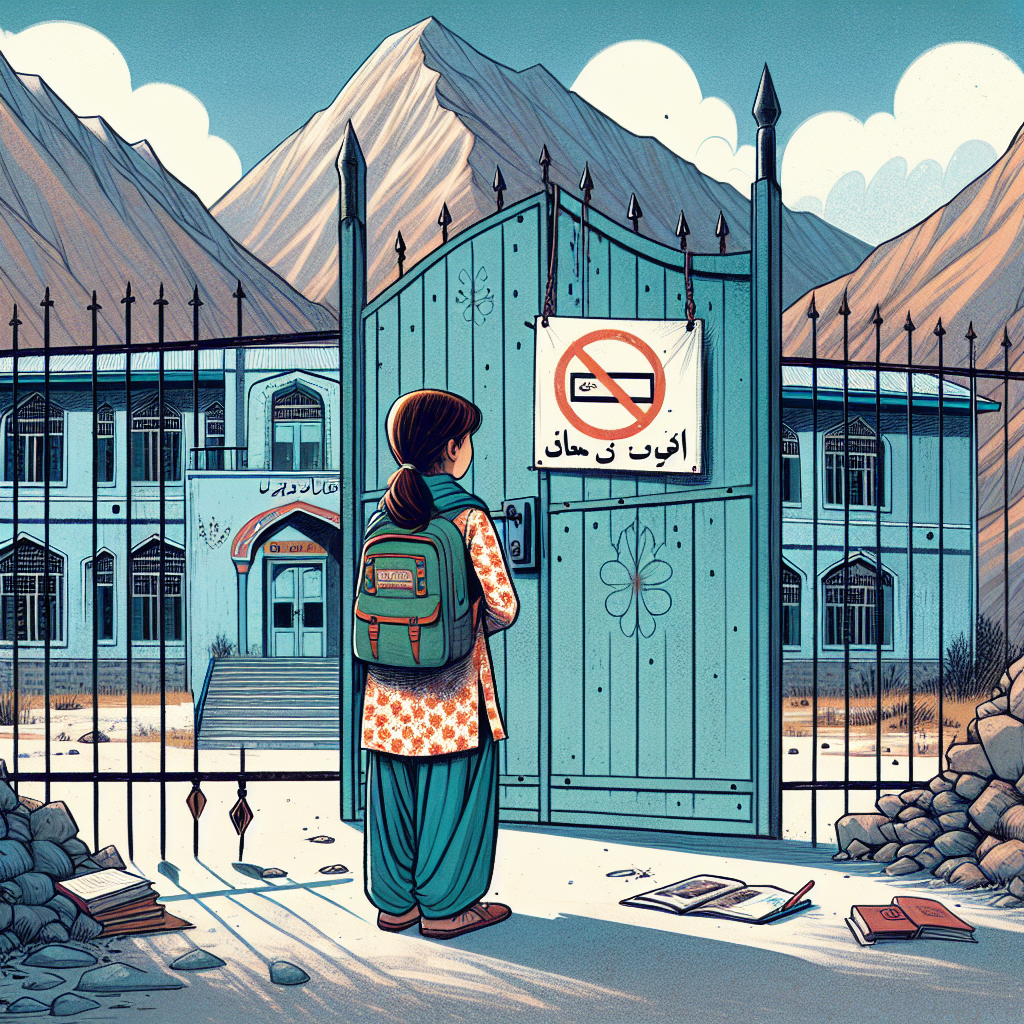Four Years On, Afghan Women Face Systematic Erasure Under Taliban Rule
Four years later, the country stands alone in the world as the only nation where secondary and higher education are banned for women and girls.

- Country:
- Afghanistan
On August 15, 2021, the Taliban seized power in Afghanistan and began what many rights advocates describe as a systematic campaign to erase women and girls from public life. Four years later, the country stands alone in the world as the only nation where secondary and higher education are banned for women and girls.
Education Erased: 2.2 Million Girls Barred from Schools
Since their return to power, the Taliban have issued over 70 decrees restricting women’s rights, with education among the harshest targets. Today, nearly 2.2 million Afghan girls are barred from continuing their schooling beyond the primary level.
Afghanistan has thus reversed two decades of progress. Between 2001 and 2021, thanks to coordinated international support led by UNESCO, the country witnessed a tenfold increase in student enrollment. Girls’ access to education grew dramatically, with primary school enrollment surpassing 80% by 2021. Women’s literacy nearly doubled, from 17% in 2001 to almost 30%.
All of these gains are now being systematically dismantled.
Women Silenced in Media and Public Life
Women have not only been excluded from classrooms but are also being pushed out of the workforce, especially in journalism. The Taliban’s “Law on the Promotion of Virtue and Prevention of Vice,” introduced in mid-2024, bans any representation of human figures and prohibits women from speaking on the radio.
Since 2021, more than 80% of women working in Afghan media have lost their jobs. Female journalists, once visible symbols of Afghanistan’s democratic transition, are now silenced.
Societal and Economic Toll
This exclusion has severe consequences for Afghanistan’s already fragile economy. With half of the population living below the poverty line, the erasure of women from education and work undermines the country’s long-term development. Decades of global research confirm that societies which restrict women’s participation suffer lower productivity, weaker governance, and slower economic growth.
UNESCO’s Response: Alternative Learning Under Threat
Despite Taliban restrictions, UNESCO has mobilized to preserve at least some access to education for Afghan women and girls. In more than 2,600 villages, over 1,000 trained facilitators are providing literacy courses to 57,000 young people, the vast majority of them girls.
UNESCO has also supported Afghan-led initiatives to reach women through media and technology:
-
Begum Organization for Women launched a radio station in 2021 and a cable channel in 2024.
-
The SOLAx platform, an online academy accessible via WhatsApp, provides daily lessons to young women barred from classrooms.
-
Collectively, these initiatives have reached an estimated 17 million Afghans.
However, these alternative systems remain precarious and are constantly at risk of closure or suppression by the Taliban.
A Call for Global Mobilization
UNESCO leaders stress that these efforts, while essential, cannot replace formal schooling. The organization continues to press governments worldwide to maintain diplomatic pressure on the Taliban, warning against premature normalization of relations with Afghanistan’s de facto authorities.
“The right to education is non-negotiable,” UNESCO declared, urging nations not to abandon Afghan women. “An entire generation is being sacrificed. We must continue demanding the immediate reopening of schools and universities.”
Keeping Afghan Women’s Voices Alive
For many Afghan women, international platforms have become one of the last avenues for visibility. Earlier this year, UNESCO dedicated its International Women’s Day commemorations to Afghan women, amplifying their calls for freedom, equality, and education.
Looking Ahead
Four years on, the Taliban’s policies have reversed hard-won gains and pushed Afghan women into the margins of society. Yet, resistance continues—in community classrooms, in digital spaces, and through the voices of women who refuse to be silenced.
As global attention shifts elsewhere, UNESCO and women’s rights advocates caution that the world must not look away. Until Afghan girls can return to classrooms, international solidarity remains their strongest lifeline.










